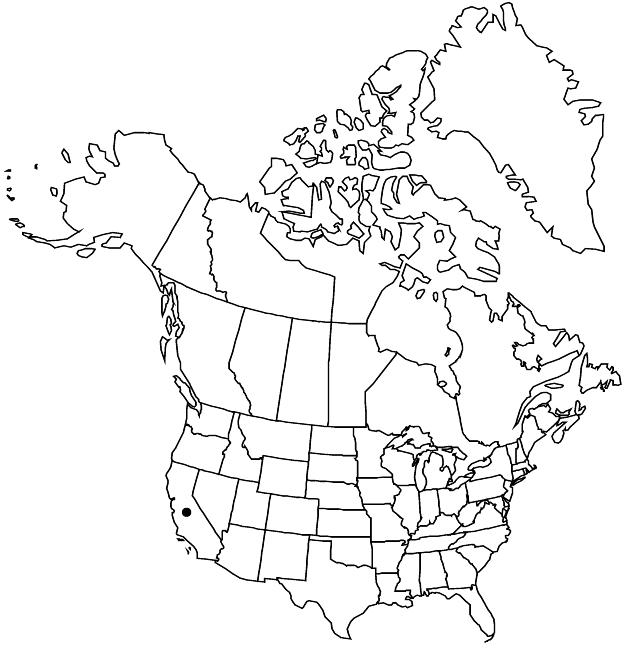Mucronea perfoliata
Muhlenburgia 2: 23. 1905.
Plants (0.2–) 0.3–2 (–3) ×0.5–5 dm. Leaves: petiole inconspicuous; blade spatulate, (1–) 2–5 × (0.2–) 0.3–1.2 (–2) cm. Inflorescences: bracts 3, spreading to nearly erect, perfoliate, becoming 1-sided and weakly perfoliate apically, connate for nearly their entire length, orbiculate, 0.5–1 (–2) cm, apex acute to obtuse; awns 0.3–1.2 (–1.5) mm. Involucres 1, 4-angled, distinctly ribbed and usually corrugate, often strongly ventricose, 3–5 (–6) mm; teeth 4, spreading to strongly divergent, glandular or strongly hirsute; awns straight, (0.3–) 0.5–1.2 mm. Flowers 1; perianth 1.5–3 (–3.5) mm, pubescent abaxially; tepals narrowly oblanceolate, erose or fimbriate apically, infrequently entire or 2-lobed; stamens 9; filaments 1–2.5 (–3) mm; anthers 0.5–0.8 (–0.9) mm. Achenes 2–3 mm. 2n = 38, 40.
Phenology: Flowering Mar–Jul.
Habitat: Sandy to gravelly flats and slopes, mixed grassland, saltbush, creosote bush, and chaparral communities, pine-oak woodlands
Elevation: 100-1600(-1900) m
Distribution

Calif.
Discussion
Mucronea perfoliata is found in the Coast and Transverse ranges from Stanislaus County south to Ventura County, and in the San Joaquin Valley from Kings County south to the Tehachapi Mountains and the northwestern edge of the Mojave Desert in Kern County.
Selected References
None.
Lower Taxa
"connate" is not a number."dm" is not declared as a valid unit of measurement for this property.